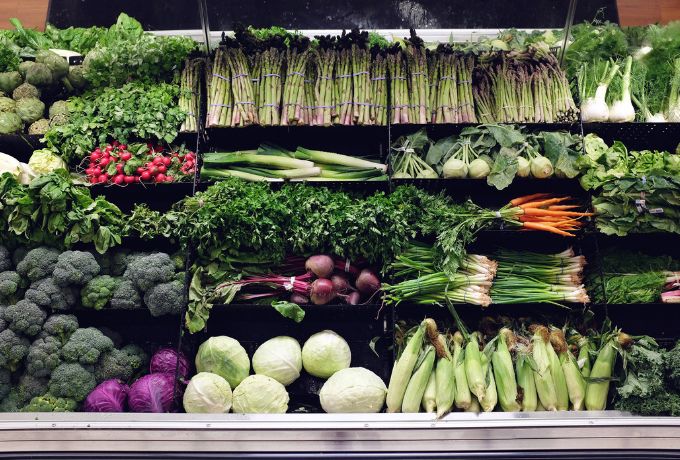Top 5 Perishables Trends in Grocery Retail for 2023
February 21, 2023
What will 2023 hold for fresh foods in retail? iFoodDS has been closely following industry news and we’ve seen many retail trends predicted, but there were a few that stood out the most to us. We believe these 5 trends will help shape fresh food departments in the coming year.
1. Retailers Will Seek Greater Visibility into Perishables
Progressive Grocer predicts retailers will invest in real-time tracking for fruits, vegetables, dairy, and other perishable items. This will yield greater insights into a product’s journey through the supply chain. For example, retailers can better understand variations in time, temperature, and handling throughout a food item’s journey. The data can be used to inform best practices for maintaining quality and preventing waste.
iFoodDS knows first-hand that real-time tracking enhances your visibility into the supply chain and provides critical data. Our own customers gain insights from our solutions that help them optimize quality and freshness. We would also like to add that real-time perishables tracking can help you comply with FSMA Rule 204. Having the tools to instantly trace an item’s path through the supply chain will ensure a rapid response to outbreak investigations.
2. Discount and Value Stores Are Gaining Market Share
Supermarket News recently reported on two interesting studies about discount grocers and value stores:
- Coresight Research predicts discount retailers will continue to gain market share in 2023 and will put pressure on traditional grocers’ profit margins. The report recommends traditional grocers focus on their value positioning to compete.
- Colliers revealed that value grocers have been attracting shoppers in all income brackets. Specifically, 86.3% of low-income, 48.2% of middle-income, and 17.6% of high-income shoppers. Notably, value stores are expanding their grocery offerings, including perishables assortment.
All grocery retailers should watch these trends in 2023. Whether you are a traditional grocer or a discount grocer, demonstrating your value to consumers will be vital for maintaining your market share. Although shoppers are seeking discounts at value grocers, they still care about freshness and shelf-life since food that lasts longer will give them the most value for their money. At the same time, traditional grocers will need to deliver consistent quality and differentiated assortments to retain customer loyalty. Maintaining quality and reducing food waste also protects grocers’ bottom lines and prevents shrink costs from being passed on to consumers.
3. Grocers Will Focus on the In-Store Experience and Fresh Assortment
Grocery Dive believes in-store shopping experience will take “center stage” in 2023. Grocers will likely update fresh departments and center store aisles, with a focus on farm-to-table as consumers seek to support local brands and look for cleaner, more nutritious meals. Another prominent trend will be small and regional grocers increasing their assortment of fresh foods to stand out against larger competitors.
With such a consumer focus on fresh foods and nutrition, it will be imperative to closely manage perishables departments. This requires a multi-pronged approach that includes optimizing quality and shelf-life across fresh foods, educating consumers on the benefits of fresh produce, and telling local suppliers’ stories to connect with shoppers.
Also consider ways your in-store experience can stand out from the competition. What unique experiences does your store offer that shoppers can’t get at another store or online? For example, do consumers walk into your store and see appealing displays that prompt them to spend more time in the store? Do you offer a product assortment that differentiates you? Can the quality of your fresh food draw them in and keep them loyal to your brand?
iFoodDS has tools to help retailers of any size optimize their fresh food departments.
4. Consumers Will Expect Retailers to Lead the Way on Sustainability
NielsenIQ predicts that in 2023, consumers will hold brands accountable for making progress on sustainability. 46% of consumers surveyed said they are looking to brands to take the lead on sustainable change. Additionally, NielsenIQ believes we will see a shift from purpose statements to actions. Consumers will want companies to prove their sustainability claims rather than letting regulatory bodies monitor compliance. In other words, shoppers want to see retailers acting on concrete goals rather than making broad, abstract statements.
Start with the things in your control to demonstrate action to your customers. For example, can you make your store operations more energy efficient to reduce emissions in the next year? Can you reduce food waste by maximizing quality and shelf-life in fresh departments? Managing quality not only prevents food waste but is also good for your bottom line.
Sustainability efforts will build loyalty and may even attract new shoppers to your brand. Note that 81% of consumers are likely to choose a retailer that rewards sustainable choices and 79% are likely choose a retailer that offers a wider assortment of sustainable options, per another NielsenIQ report.
5. Store Brands Are a Growing Opportunity
Store brands (private labels) are growing in popularity, providing a new opportunity for grocery retailers. According to IRI, 99.7% of U.S. households purchase store brand products. These items have also increased their share of all-outlet sales by 17.5%. Research from Colliers reveals 61.3% of consumers will switch to private label if inflation continues, and private label brands are poised to reach 21.6% of sales in 2026.
The rise of private label brands is an opportunity for grocery retailers to capture more consumer dollars and build loyalty, but this trend isn’t solely about saving money. Consumers are still looking for quality, value, and unique product assortment. AlixPartners advised retailers to develop their own brands in order to differentiate themselves in the market: “Private brands known for quality, innovative products will drive trips because shoppers won’t be able to get those exact items anywhere else.” iFoodDS agrees with the importance of quality and product differentiation in private brands and recognizes their impact on brand loyalty. Focusing on quality and assortment helps retain customers and protects your valuable brand equity.
Conclusion
Overall, consumers have a complex mix of priorities and concerns in 2023. From the effects of inflation to concerns about the environment and their own health and well-being, consumer sentiment will drive the biggest trends in the grocery retail industry. We believe fresh foods departments will continue to be a differentiator for both traditional and discount retailers.
Do you have the tools you need to manage freshness and quality in perishables? iFoodDS helps retailers leverage quality data to improve sourcing, reduce rejections, and improve overall selection and freshness in perishables. Get in touch with our team to see how we can transform your fresh food departments.





